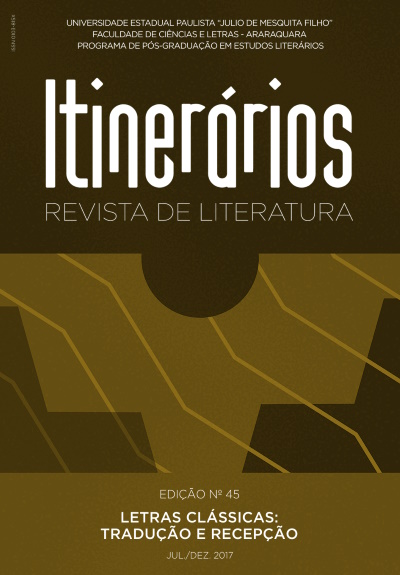A glauberiana, a tragic choir of Oedipus: from the ancient world to the tropical Brazil
Keywords:
Hughes, Oedipus, Reception, Seneca, Theatre,Abstract
From a descriptive analysis of texts and conditions of production, this article presents the reception of the ancient theater in the Brazilian stage through the play Oedipus by Seneca, a Latin author of the first century AD. A series of performances took place in São Paulo in 1996 based on a translation and adaptation of Ted Hughes’ (1930-1998) play The Oedipus of Seneca, staged in England in 1968 by Peter Brook and made canonical. In Brazil, the dramatic poetry of Hughes was indigenized in Édipo de Tabas, of which title is a clear pun, whose indigenous term evokes the Greek city of Thebes, where the plot originally takes place. The version in Portuguese created by the troupe Teatro Promíscuo, captained by the actor and director Renato Borghi, but never published, includes a choir evoking the Brazilian filmmaker Glauber Rocha (1939-1981).
Downloads
Published
Issue
Section
License
Os manuscritos aceitos e publicados são de propriedade da revista Itinerários. É vedada a submissão integral ou parcial do manuscrito a qualquer outro periódico. A responsabilidade do conteúdo dos artigos é exclusiva dos autores. É vedada a tradução para outro idioma sem a autorização escrita do Editor ouvida a Comissão Editorial.

